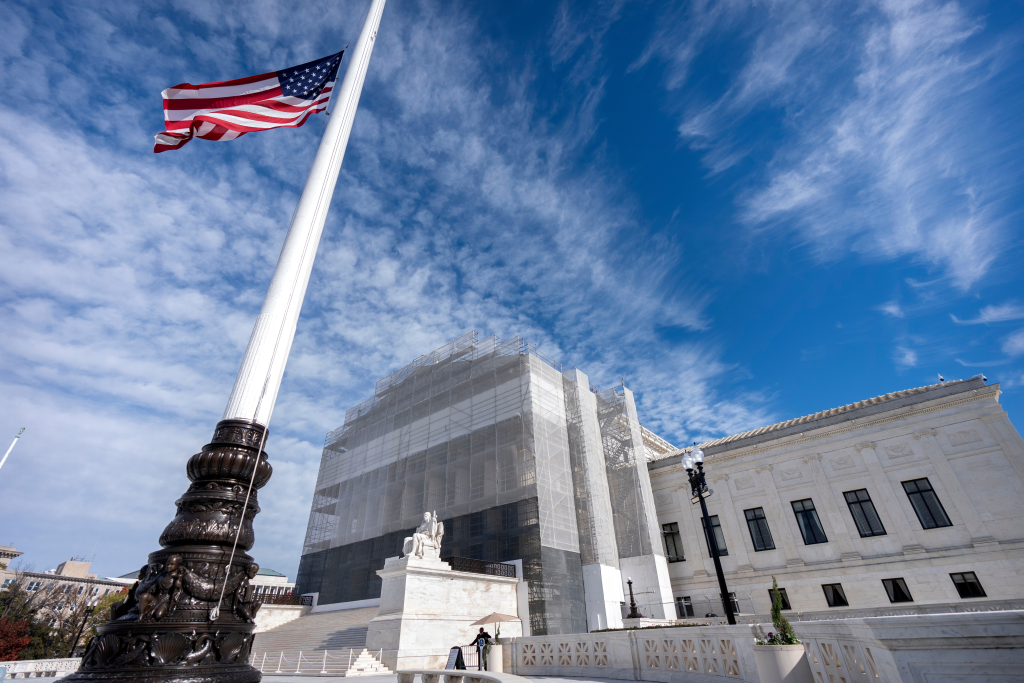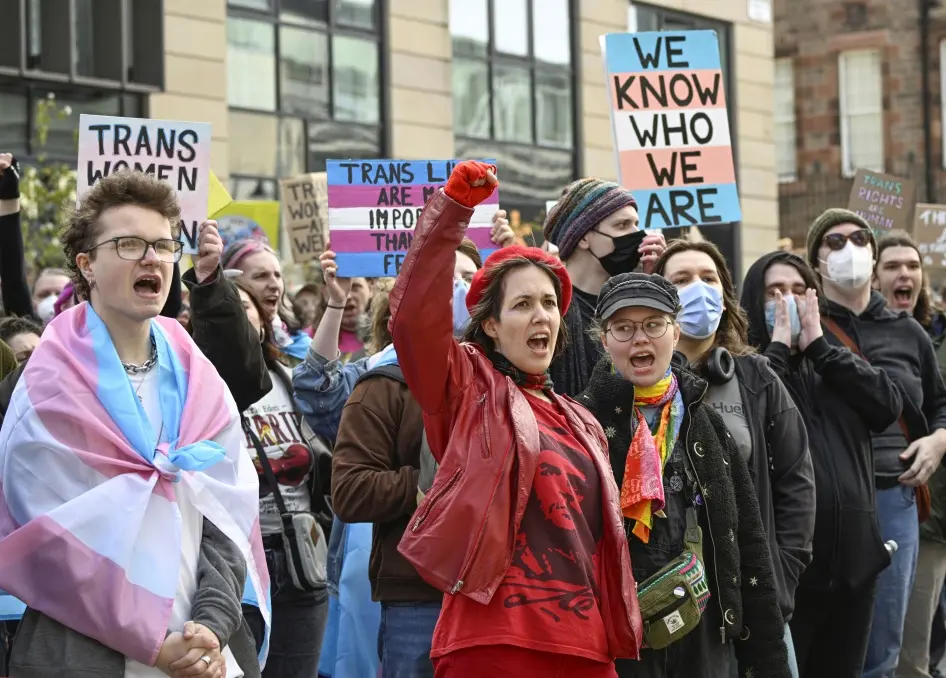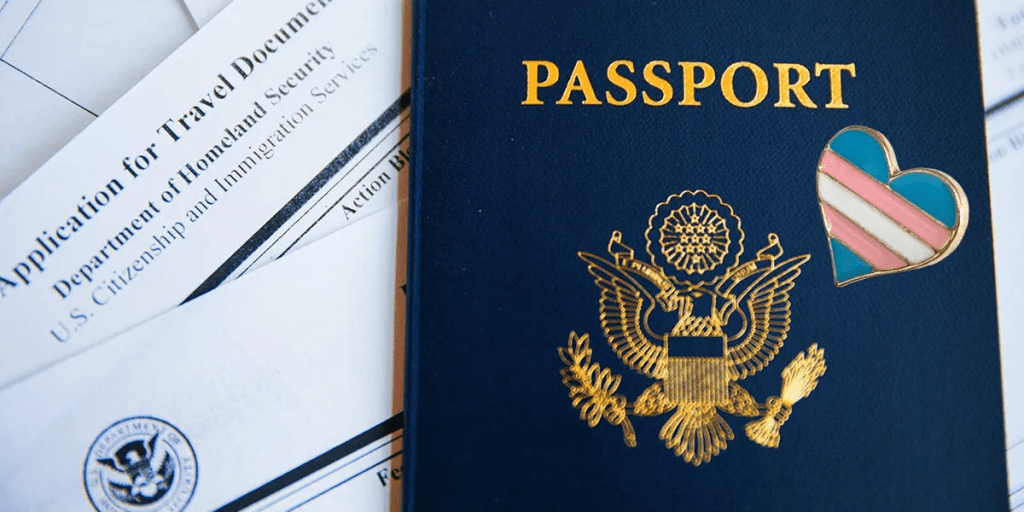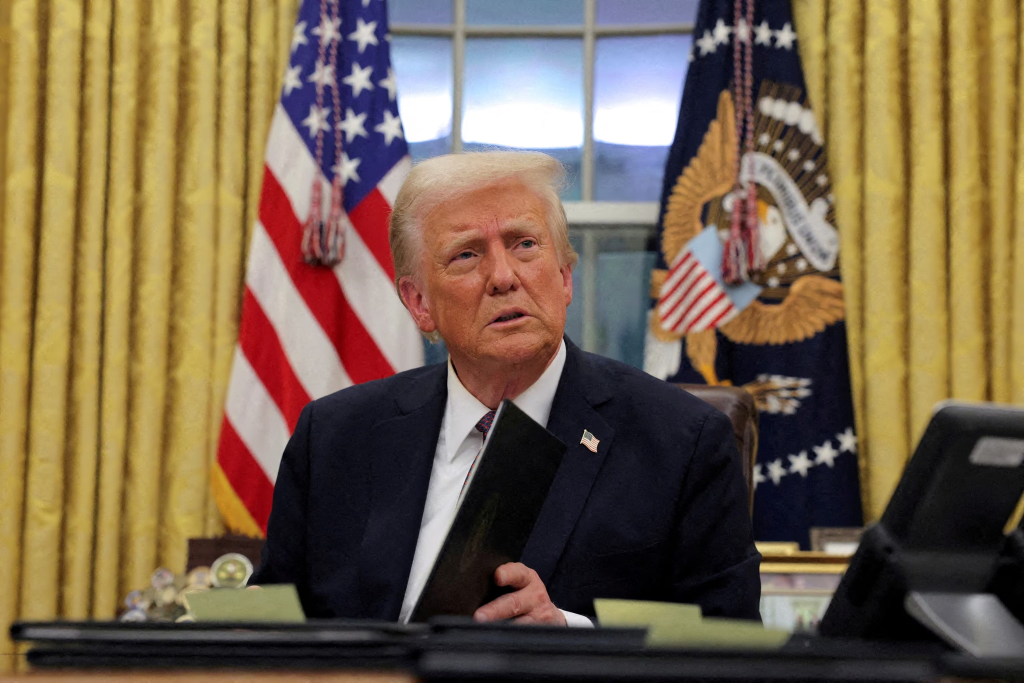Supreme Court Upholds Trump’s Policy Requiring Passports to Reflect Biological Sex, Marking a Historic Shift in Federal Identity Law
In a landmark ruling that reignited a national debate over gender identity and government recognition, the Supreme Court of the United States has upheld President Donald Trump’s 2025 executive order mandating that U.S. passports list sex strictly as male or female based on birth certificates. The 6–3 decision, announced on November 6, 2025, overturns a lower court injunction that had blocked enforcement of the policy earlier this year. The ruling allows federal agencies to immediately begin applying the new standard, ending the short-lived “gender self-identification” option on passports introduced during the Biden administration.

The case stemmed from a January 2025 executive order in which President Trump declared that “the federal government shall maintain the integrity of official records based on biological reality, not subjective identity.” The order required the Department of State to revise passport rules so that only the sex assigned at birth—verified through official documentation—would appear on identification. The move was hailed by supporters as restoring accuracy and consistency to government records, while critics decried it as a sweeping rollback of transgender rights.
For months, the issue had been tied up in court after civil rights groups, including the ACLU, filed suits arguing the order violated the Fifth Amendment’s equal protection clause and unlawfully discriminated against transgender and nonbinary Americans. In June, a federal judge in Massachusetts issued an injunction halting the rule’s enforcement, stating it likely reflected “unconstitutional animus” toward transgender people. But the Trump administration swiftly appealed, arguing that the government has an unquestionable right to determine how official documents reflect objective data.

The Supreme Court’s conservative majority sided with that argument. Writing for the majority, Justice Neil Gorsuch stated that “sex, as recorded at birth, represents an immutable biological fact upon which the federal government may reasonably rely.” He added that the passport’s purpose is “to verify identity across borders, not to affirm individual expressions of self.” Chief Justice John Roberts and Justices Clarence Thomas, Samuel Alito, Brett Kavanaugh, and Amy Coney Barrett joined the opinion. The liberal justices dissented, warning that the decision would harm vulnerable Americans and signal a regression in civil rights protections.
Justice Ketanji Brown Jackson, in a sharply worded dissent, called the ruling “a state-sanctioned denial of lived reality” and cautioned that it “invites humiliation and danger for citizens whose identification documents now betray their lived identities.” Justice Sonia Sotomayor joined her in dissent, arguing that the ruling “erases a decade of progress in recognizing that dignity and safety depend on congruence between identity and documentation.”
The Trump administration celebrated the ruling as a major victory for what it described as “truth in government records.” In a statement released shortly after the decision, White House Press Secretary Karoline Leavitt said, “President Trump promised to restore sanity and biological accuracy to our institutions. Today’s decision is not only a win for science and clarity, but a reaffirmation of the rule of law.”

The ruling marks one of the most consequential legal developments in Trump’s second term and reflects his administration’s ongoing efforts to reshape social policy along biologically defined lines. Earlier orders reinstating restrictions on gender-affirming care for minors and revising Title IX interpretations to exclude gender identity have already sparked heated national debate.
For transgender and nonbinary Americans, the implications of the decision are deeply personal. More than 1.6 million Americans identify as transgender, according to estimates from UCLA’s Williams Institute. Many of them rely on gender-congruent documentation for daily safety and ease of travel. Advocacy groups say the new passport rule could force individuals to present identification that “outs” them against their will or leads to denial of service, harassment, or scrutiny during international travel.
Civil rights organizations immediately condemned the decision, vowing to continue challenging it in lower courts and to advocate for legislative remedies. The ACLU said in a statement, “This is a dark day for equality. The Supreme Court has chosen bureaucracy over humanity.” Lambda Legal, another advocacy group, called the decision “an affront to dignity and safety,” adding that it would leave transgender Americans “navigating life with documents that no longer reflect who they are.”

Supporters of the Trump administration’s policy, however, insist that the decision restores integrity to official documentation and prevents confusion in legal and international contexts. Conservative commentators argue that the inclusion of “X” gender markers under the previous administration blurred legal clarity and posed complications for immigration, security vetting, and data consistency. To them, the ruling represents not discrimination but standardization—a return to what they describe as “objective biological fact.”
Behind the legal arguments lies a deeper national divide over how government institutions should define sex and gender. Scientists largely agree that biological sex is determined by chromosomes and reproductive anatomy, while gender identity involves complex psychological, social, and personal dimensions. Yet the Court’s ruling—and the Trump administration’s policy—leans decisively toward the view that government recognition should rest on biology, not identity.
Supporters of the decision point to international norms. They note that most countries still require official documents to list sex at birth and that self-identification policies, though increasingly common in Western Europe and Canada, remain controversial even there. They also emphasize that biological classifications remain essential for medical, legal, and security purposes. “A passport is not a personal diary,” one administration official said. “It’s a legal document used by sovereign nations to verify identity and citizenship. The United States will not compromise that clarity.”
Opponents counter that the ruling imposes unnecessary hardship and fear on an already marginalized population. They warn that individuals with documentation inconsistent with their lived gender could face detainment at airports, refusal of entry, or even violence abroad. Doctors and mental health professionals have also raised alarms, noting that forcing transgender individuals to carry mismatched identification may exacerbate gender dysphoria and psychological distress. The American Psychiatric Association’s DSM-5 recognizes gender dysphoria as a legitimate medical condition, and experts stress that social and legal affirmation significantly reduce related anxiety and depression.

The public reaction has been predictably polarized. Conservative media outlets framed the ruling as a triumph of “truth over ideology,” while liberal commentators called it “a stunning act of erasure.” Protests broke out in several major cities, including Washington, D.C. and San Francisco, where demonstrators carried signs reading “Identity is not up for debate” and “Passports are not politics.” Online, the hashtag #PassportEquality trended for hours, while Trump supporters countered with #BiologyWins.
Inside Washington, the political ramifications are enormous. The ruling bolsters Trump’s appeal among his conservative base, which has long criticized what it sees as overreach by progressive social movements. It also gives momentum to pending bills in Congress that seek to align federal definitions of sex and gender strictly with biology. Republicans praised the decision as a victory for common sense, while Democrats vowed to introduce counter-legislation protecting gender self-identification in federal records.
As of now, the State Department has begun implementing the Court’s ruling. Officials confirmed that passport applications will immediately require documentation verifying sex as listed on the applicant’s birth certificate. Existing passports bearing an “X” or self-selected gender marker will remain valid until expiration, but renewals will be subject to the new rule. This change affects potentially hundreds of thousands of Americans who obtained gender-neutral or self-identified passports since 2021.
Beyond policy, the emotional toll of the ruling cannot be overstated. For transgender Americans, it represents not just a bureaucratic inconvenience but a deeply symbolic loss—the feeling that their government no longer acknowledges their reality. For supporters of Trump’s agenda, however, it symbolizes a long-awaited course correction in what they see as a country losing touch with objective truth.
The Supreme Court’s decision is likely to be remembered as one of the defining cultural rulings of the decade—a moment when the highest court in the land sided with biological essentialism over gender self-determination. Whether history views it as a restoration of clarity or a setback for human rights will depend on how the country chooses to move forward from here.
As of late 2025, America stands divided but decisive. The law now requires that passports reflect sex at birth, and for millions of Americans, that simple designation—M or F—has become a defining line in the culture war over identity, freedom, and truth.


